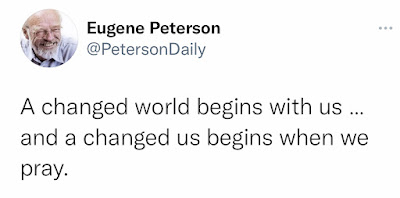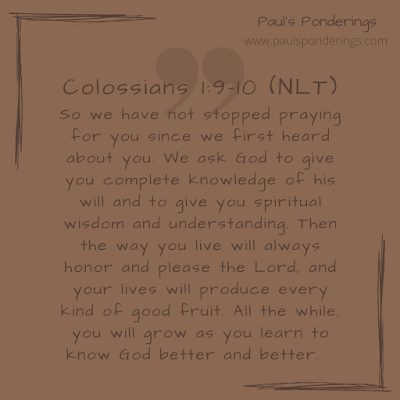I love the Bible.
In fact, I believe that people who follow Jesus should be readers and students of the Bible. In the Bible we discover God, His character, and His will.
Without the Bible we would not be able to follow Jesus or be the people God created us to be.
Last year I lead Bethlehem Church through The Story to give us a good overview of what the Bible is about. One of the things I constantly talked about through that series is that the Bible is gift from God. In all the 30 sermons I preached, I said, “We need to read, study, meditate on, and pray the Bible to be good stewards of the gift God has given to us.”
Even though I have a high view of Scripture, I also understand that it has limitations.
As modern readers of the Bible, we often approach it as if it has the answer to all of life’s questions. That is a primary reason why we read and study the Bible: to have all the right answers.
Instead of viewing the Bible as an answer book, we need to see the Bible as a tool to help create a worldview. It may not provide the answers to all the questions asked in our culture, but it does provide a framework that helps us create a Christian worldview.
I have been pondering how we use the Bible the past few days for a couple of reasons.
1. BibleProject has a podcast series that looks at ancient cosmology. One of the key points in the series is looking at how the Biblical account of creation is in dialogue and debate with the other ancient creation myths.
Many Western Christians, for the past 120 years or so, have used the Bible to provide facts and answers about the beginning of the universe. The problem is that the Bible was not written to answer modern scientific questions. It was written to give God’s people a particular view of the world and to combat the pagan religious views of their neighbors.
Therefore, we shouldn’t expect the Bible to give us definitive answers about the how and when of creation, but we should expect it to give us an understanding about who God is and why He created the world.
2. Preston Sprinkle wrote:
If someone experiences and congruent between their biological sex and their gender, which one determines who they are—and why? What does the Bible say about this question?
That’s the problem. The Bible doesn’t directly ask and answer this question. There’s no verse in, say, Leviticus 28 that says, “If thy gender identity does not match thy biological sex, then thine body is who you really are.” Or whatever. (There is no Leviticus 28, in case you are flipping pages to check.) But the Bible does say quite a few relevant things about human nature and the importance of our biological sex which will position us to cultivate a theologically informed and biblically rooted answer to our question. (Embodied, p. 63)
After doing lots of research, Sprinkle admits that the Bible doesn’t contain the answers to the questions surrounding the transgender conversation. You can’t compile a list of verses that deal specifically with these issues.
Not only is this true for the transgender conversation, but it is true for many of the questions we have today. Our culture is significantly different from the cultures that the Bible was originally written for. We shouldn’t expect to to have answers to our modern questions.
Since the Bible is God’s gift to His people, we can expect that it will give us a proper perspective to see the world.
It is important to make this shift away from seeing the Bible as an answer book to one that helps us create a Christian worldview.
God did not give us the Bible so we can have all the right answers.
Rather, He gave us the Bible so we can become the right type of people.
If we primarily use the Bible to have the right answers, to win arguments, and to point out other people’s sin then we are using the Bible wrong.
The Bible should help form us into the people God created us to be. One of the ways it does that is to create a proper perspective for us to see the world.
Let the Bible form your worldview.











